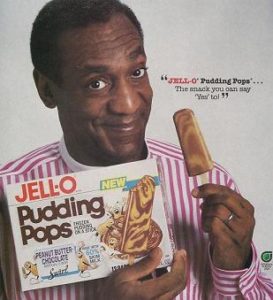 If events like the Super Bowl are any indication, celebrity endorsements are just as powerful a promotional tool now as they were when Babe Ruth first plugged Red Rock Cola. From Stephen Colbert cracking up over pistachios to Ben Kingsley’s ominous urge to drive a Jaguar, big business continues to shell out big bucks for associating well-known faces with their brands.
If events like the Super Bowl are any indication, celebrity endorsements are just as powerful a promotional tool now as they were when Babe Ruth first plugged Red Rock Cola. From Stephen Colbert cracking up over pistachios to Ben Kingsley’s ominous urge to drive a Jaguar, big business continues to shell out big bucks for associating well-known faces with their brands.
But is the long-term risk really worth the short-term gain?
When it comes to marketing strategies, celebrity endorsements are one of the biggest gambles a company can make. Should the star continue to appeal to both the company’s core consumer and increase sales to their target consumer, the celebrity’s contract cost will be a drop in the bucket compared to the profit increase. But if that star slips up, well, we’re all pretty aware of the consequences.
The Down Side
Richard Simmons Dancing for Obamacare
Richard Simmons is certainly a recognizable figure to the majority of Americans, but he might not be the best candidate for getting young people excited about something as serious as healthcare. In early January 2014, Simmons participated in a dance off for the Tell a Friend-Get Covered campaign with contortionist Nathan Barnatt, hosted by Hannah Hart of the internet show “My Drunk Kitchen.” It was a sad, awkward fiasco that the website Red Alert Politics described “…as if the audio-visual club got wasted on malt liquor and hijacked public access television.” While the video of the dance off has become quite popular, the younger generation’s apathetic attitude toward Obamacare continues to be unfazed.
The Tiger Woods Scandal
Tiger Woods had it made. At the age of 22 he set a record for reaching number one status in the Official World Golf Rankings faster than any other golfer. He commanded the most lucrative endorsement contracts ever seen in the history of golf and went on to achieve the longest running winning streak since 1948. And then, in 2009, he admitted to a number of infidelities and crashed his car into a tree while still in his own neighborhood. Of the eight major endorsement contracts he had at the time, six quickly ended and the two that stuck around took a significant hit. Between all of the endorsing companies, it’s estimated that shareholders lost between $5 and $12 billion in wealth.
The Up Side
Celebrity endorsements aren’t always doomed to failure, however. While the crashes may stand out a little more than the successes, there are a number of endorsements that will forever be tied in our memories between celebrity and product:
Michael Jordan and Nike
One of the most successful celebrity endorsement campaigns to date, Michael Jordan’s association with Nike’s Air Jordan line has grossed more than $1 billion and despite two retirements and a gambling controversy, his shoes continue to be one of Nike’s best-selling lines every year.
Bill Cosby and Jell-O
What 30 year-old doesn’t remember Bill Cosby’s Jell-O commercials? The iconic dad of the 80s, Cosby was the perfect spokesman for the easy-to-make, low fat treat. Appealing both to kids and parents, Cosby used his family-friendly humor to capture Jell-O’s ideal audience.
Even if your choice for celebrity spokesmodel appears to be as iconic and family-friendly as Bill Cosby, there’s still a chance that your “great dad” model might turn out to be a foul-mouthed Bob Saget (and even the Coz has gotten himself scolded for speaking his mind). Celebrity endorsements are a high-stakes gamble and, as with any bet, you could just as easily wind up in the penthouse as in the doghouse.
Diana Gomez is the Marketing Coordinator at Lyoness America, where she is instrumental in the implementation of marketing and social media strategies for USA and Canada. Lyoness is an international shopping community and loyalty rewards program, where businesses and consumers benefit with free membership and money back with every purchase. Check out Lyoness on Twitter @Lyoness_EU.